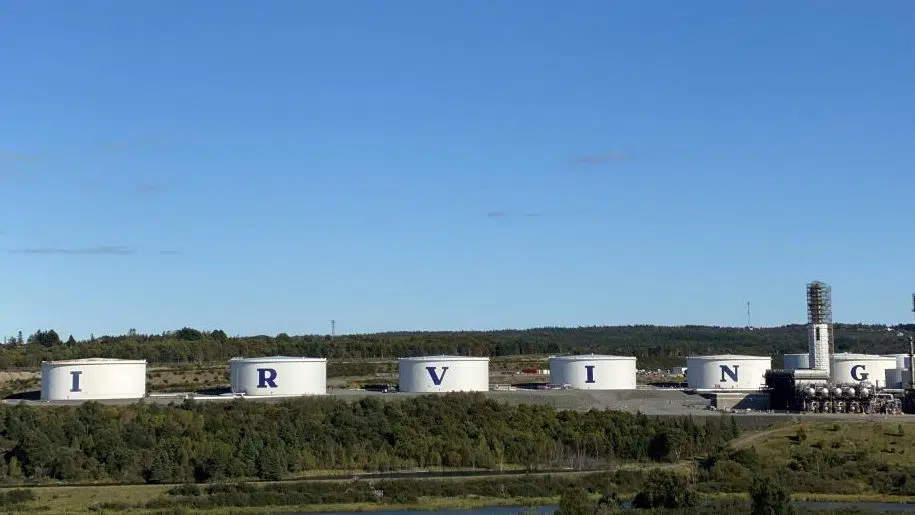Irving Oil says it will consider a new ownership structure, a “full or partial sale,” and changing its portfolio and assets as part of a strategic review of the business.
The company quietly released a statement Wednesday announcing that the review is already underway and that “a series of options are being evaluated related to the company’s future.”
Irving says no decisions have been made about where the strategic review may lead but that several options are on the table.
“As we evaluate our options in the coming months, our focus remains on our team” and continuing to deliver Irving products and energy, the company says.
Not much else is known about the strategic review, or what prompted it, at this time. Irving has not responded to Huddle’s request for comment, neither has the provincial government.
A decision fueled by climate change
Dr. Rob Moir is an economist and a professor at the University of New Brunswick. He says it’s tough to know the possible impacts of Irving’s announcement because the company is so tight-lipped.
However, he says the decision is almost certainly being driven by climate change.
“With the fires raging [across the country] right now, we’re seeing the direct effects of climate change, and that means the fossil fuel industry has its days numbered,” he says.
Moir speculates, however, that Irving understands that and has been telegraphing its intention to pivot to a new energy economy.
He sees that both in Irving’s larger moves like investing in hydrogen, which is considered much greener than other fossil fuels, and its smaller ones like putting solar panels on its delivery trucks.
“I think they’re reading sensible tea leaves saying ‘when is the appropriate time to think about how we pivot?’” he says.
With so little information coming from Irving, it’s impossible to say what that pivot will be, but Moir says it could mean selling off or converting parts of the business more directly tied to fossil fuels.
“It doesn’t mean they will leave the industry completely, but they probably will leave parts of it behind,” he says.
Moir argues that climate change was going to eventually force Irving to dramatically alter its business. But although the change was inevitable, how quickly and smartly it happens could have big impacts on New Brunswick and its economy.
Councillor calls for more transparency
Brent Harris is a Saint John city councillor who has been critical of what he sees as Irving’s lack of transparency.
He says it’s frustrating Irving won’t say more about its strategic review, considering how impactful it could potentially be for New Brunswick, and how much the province has invested in the company.
“This is a private company that requires a ton of public money to keep going and we have no public discretion or view on what happens inside of it,” he says.
Harris argues the city gives a lot to Irving in the form of tax breaks and providing it with city services.
“We [Saint John] have to have the most competent, most highly trained, most fully equipped firefighting department in this province just because they’re here. But they don’t pay for firefighters, not directly,” he says. “[Meanwhile, Irving properties] produce the lowest tax density in the city per metre… and yet we have to service it the same way we service any other industrial site.”
He claims the company’s “unnatural monopoly” on the city isn’t sustainable and that it makes sense Irving might be looking elsewhere. However, he did say he doesn’t want to see Irving pick up and move elsewhere.
“Do I want the HQ to sell and move? No. Do I want to find a balance and a position that works for the community and supports the community it’s in? Yes,” he says.
Trevor Nichols is the editor of Huddle, an Acadia Broadcasting content partner.







